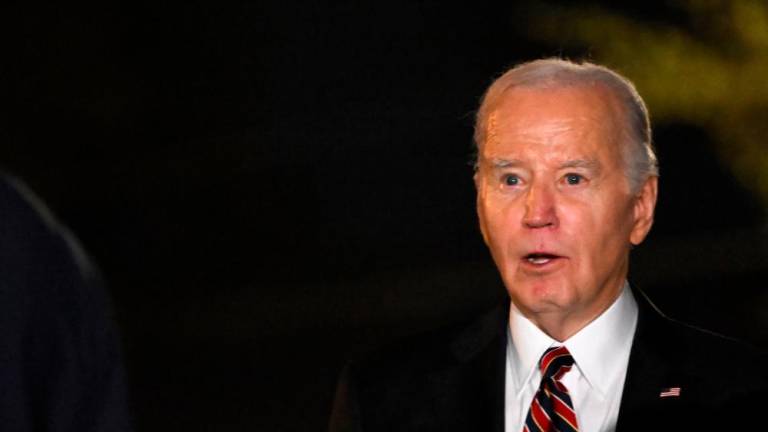PETALING JAYA: The ringgit saw a drop of as much as 0.78% to 4.2271 against the US dollar yesterday following the upheaval in the Malaysian political landscape which culminated in the resignation of Tun Dr Mahathir Mohamad as prime minister.
The local currency traded at 4.2250 against the US dollar at 5pm today, a 0.72% decline from last Friday’s 4.1945, the lowest since November 2017.
In light of the ongoing political developments, Bank Negara Malaysia was quick to issue a statement that it is closely monitoring conditions in the financial markets.
“While ringgit movements will continue to be market determined, BNM’s market operations will ensure sufficient liquidity and orderly financial market conditions,” it said in a press statement today.
There is consensus among analysts that the political turmoil further exacerbates the external headwinds from the Covid-19 outbreak and China’s economic slowdown on the Malaysian economy.
FXTM market analyst Han Tan said the political uncertainty has added downward pressures on the ringgit, which has already been contending with concerns over the coronavirus outbreak impact.
“Ultimately, investors will be interpreting the political maneuvering through the lens of policy continuity in determining whether the ringgit should remain on the weaker side of 4.20 against the US dollar,” he told SunBiz.
Tan projected that the ringgit may soften towards the 4.24-4.25 region against the greenback, until there is more clarity for Malaysia’s policy and economic outlook.
With the current situation, Sunway University Business School professor of economics Dr Yeah Kim Leng highlighted that a quick resolution to the political landscape will be needed for the currency to stabilise.
“This will then enable the government to shift its focus on stimulating the economy to shore up market confidence and put a floor on further slide in the ringgit,” he said.
Yeah noted that political uncertainties in mature democracies have less impact on the economy due to their peaceful nature.
He offered a worst-case scenario of civil strife and violence that follows leadership and government changes seen in third world countries.
“Fortunately such probabilities are low in Malaysia due to greater political maturity and track record as established in the last election,” he said.
Meanwhile, according to an analyst who declined to be identified, further weakness may be priced in if the new coalition or successor lacks a strong mandate to rule.













